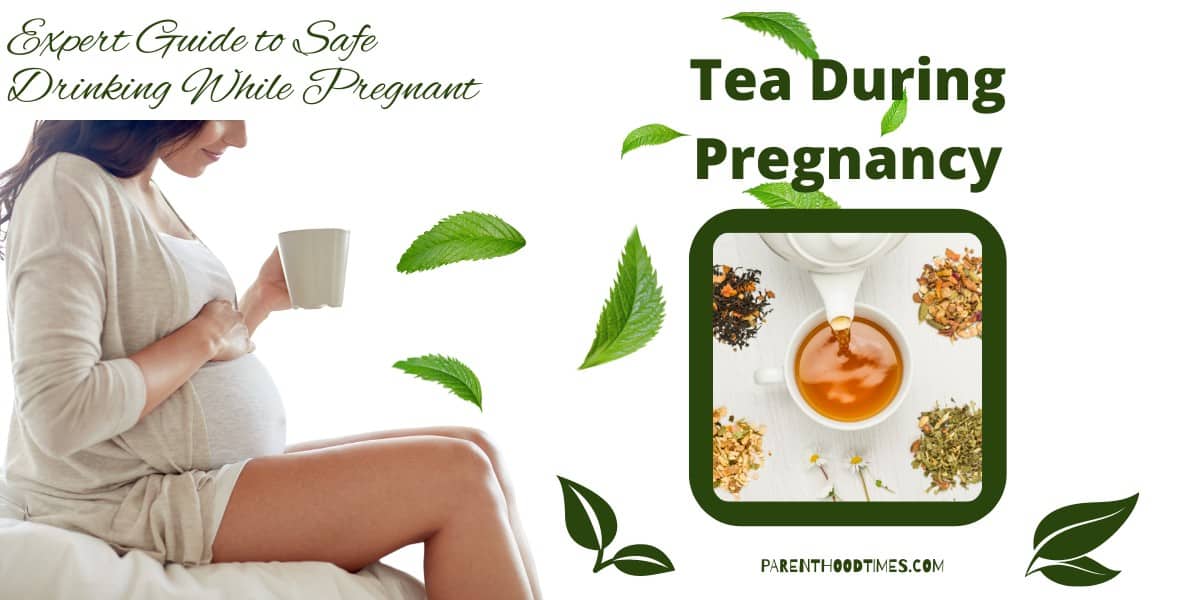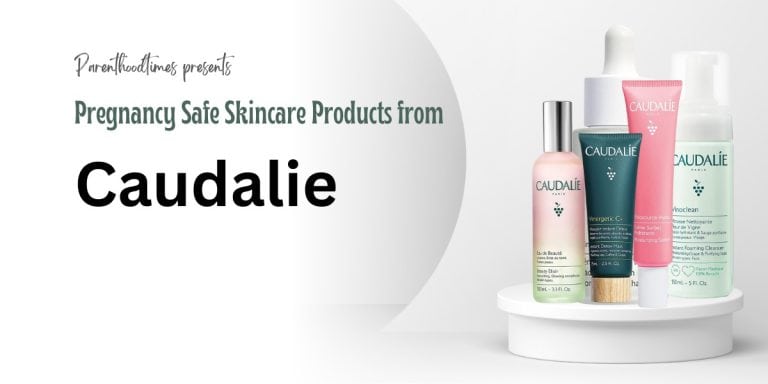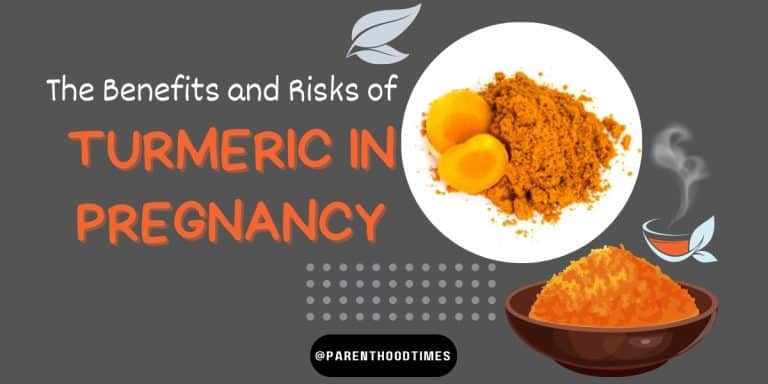Tea During Pregnancy: What’re Safe and What’re Best to Avoid?
Like many of us out there, you probably rely on a few cups of tea to help calm your nerves and take the edge off. Teas also offer a plethora of health benefits for pregnant women, particularly those suffering from morning sickness and headaches. While most teas are safe to drink during pregnancy, there are some that are best to avoid.
In this article, we have shared some of the most popular teas that are safe to drink while also providing a list of teas that may be dangerous during pregnancy.
Is Tea Really Safe During Pregnancy?
As mentioned earlier, tea is considered safe for consumption during pregnancy, with some exceptions. Tea contains caffeine, which can help with nausea and headaches associated with early pregnancy. However, too much caffeine can cause insomnia, elevated blood pressure, and heart palpitations.
Experts recommend limiting coffee and tea to only 200 milligrams of caffeine daily while pregnant or breastfeeding. If you are craving tea, try decaffeinated herbal or fruit teas instead — they are packed with antioxidants and flavor without the caffeine buzz.
Read Also: 10 Best Pregnancy-Safe Teas for Pregnant Women
If you have a family history of miscarriage, stillbirth, or health issues like pre-eclampsia (high blood pressure), limit your tea intake during the first trimester. During these times of pregnancy, complications are more likely to occur. To be on the safer side, many women even abstain from tea entirely until after delivery to protect unborn babies from any harm.
However, if you are wondering whether there are any benefits of drinking tea, here they are below.
Benefits of Drinking Tea During Pregnancy
You can drink tea during pregnancy for many reasons. Antioxidants and vitamins in tea can help fight flu, colds, and infections.
Some of the health benefits of drinking tea during pregnancy include:
- Improves focus
- Helps fight fatigue
- Boosts energy levels
- It helps relieve morning sickness
- Improves digestion throughout the day
- Provides necessary antioxidants and vitamins
But if you don’t follow the safety guideline while drinking tea during pregnancy, you may find yourself in hot water. Here are some potential risks.
Risk Factors of Drinking Tea During Pregnancy
Pregnant women should be mindful of the safe consumption limit. Excessive caffeine intake may raise the possibility of miscarriage and some other complications during pregnancy.
Tannic acid, found in some black teas, can cross the placenta and enter the fetal system. When this happens, the baby may experience hyperactivity or failure to grow properly. Even a tiny amount of tannic acid could harm the developing fetus.
Experts usually do not recommend tea for individuals with heart conditions or high blood pressure either. If you are taking any prescription medications, check with your doctor before consuming tea while pregnant.
So the question is, how do you know which teas are safe during pregnancy?
Is herbal tea safe for pregnancy?
Chamomile, Raspberry, Sage, Rose Hips, Mint, Chamomile, Peppermint, and Ginger are some of the most popular herbal teas on the market. Are all these herbal teas safe to drink during pregnancy? Well, let’s address them one by one.
Is raspberry tea safe during pregnancy? Yes, raspberry tea is likely safe while pregnant. Red raspberry leaf tea is widely known for its labor-inducing properties. Research suggests that taking red raspberry leaf tea could lower the length of the second stage of labor.
Is chamomile tea safe during pregnancy? Chamomile tea is safe during pregnancy unless you drink large amounts regularly. Research suggests that excessive consumption of chamomile tea could affect your unborn baby.
Is rooibos tea safe during pregnancy? Pregnant or not, Rooibos is one of the safest herbal teas for tea lovers. That’s because they are rich in antioxidants and naturally caffeine-free.
Is ginger tea safe for pregnancy? Yes, it is a pregnancy-safe herbal tea. Moderate intake of ginger tea during pregnancy could help pregnant women with upset stomachs and nausea. However, be mindful of your consumption limit because excessive consumption may lead to heartburn, gas, and belching.
Is peppermint tea safe during pregnancy? Dry leaves of the peppermint plant are used to produce peppermint tea. Like chamomile and ginger, peppermint is also considered safe to drink during pregnancy. It is one of the most widely used herbal remedies in pregnancy.
Is cinnamon tea safe during pregnancy? Cinnamon is another variety of herbal tea. A moderate intake of cinnamon tea is safe and beneficial for pregnant women.
Instead of drinking the same herbal tea, try to add variety to your everyday consumption. You should avoid some herbal teas in pregnancy altogether, like licorice and sage. Also, it is recommended that you talk to your gynecologist before consumption.
Can you Drink Black Tea during Pregnancy?
Yes, black tea is likely safe to drink during pregnancy, but with a caveat. Since black teas contain the highest amount of caffeine content, experts usually advise against drinking black tea during early pregnancy when there is a slightly higher risk of miscarriage.
Further, one study has shown that higher caffeine consumption changes the body’s hormone levels, which in turn could raise the risk of pregnancy loss. Since the safe limit of caffeine consumption is still unclear, it’s best to avoid drinking black teas altogether if you’re pregnant.
Is Bubble or Boba Tea Safe during Pregnancy?
Well, it’s safe to enjoy an occasional bubble tea drink to satisfy your cravings. Since boba or bubble drinks are usually rich in sugar and carbs, consult with your OB if you have gestational diabetes.
Also, there’s caffeine in bubble tea. So watch your caffeine intake and avoid drinking it late in the evening.
Teas that are best to avoid during pregnancy
Avoid or limit drinking the following teas during pregnancy.
Oolong Tea
The primary concern with oolong tea is that it can contain excessive amounts of tannin, which has been linked to miscarriages and congenital disabilities. Ask your doctor if you plan to drink it while pregnant. Oolong tea is also known to affect a mother’s lactation, so try to avoid it while breastfeeding.
Green/Matcha Tea
Compared to the other type of green teas, matcha tea has more caffeine. It ranges from 18 to 50 mg of caffeine in one serving. So pregnancy complications might occur if you aren’t careful about caffeine intake.
Chamomile Tea
Pregnant women should avoid herbal teas like chamomile and mint while they are pregnant. Experts claim that these herbs can cause uterus stimulation that may lead to miscarriage.
Teas that may cause miscarriage during pregnancy
Research on the safety of some teas during pregnancy is still in the early stage. A few studies have suggested that specific substances in some teas can harm pregnant and breastfeeding women. So it is always a good idea to check with your doctor before consuming teas during pregnancy. Here are some teas that are considered unsafe during pregnancy:
Blue Cohosh Tea
Blue cohosh is a major no-no for pregnant women because of its abortifacient properties. If taken by mouth, blue cohosh can also cause complications such as stomach upsets (indigestion, diarrhea), high blood pressure, high blood sugar, and a few other side effects. For this reason, blue cohosh tea is considered very unsafe and poisonous for pregnant women.
Ginseng Tea
Animal testing of ginseng has proven that it’s capable of causing embryonic malformations. Also, ginseng might cause hormonal imbalance during pregnancy. That’s why experts often advise against drinking ginseng tea during the first trimester of pregnancy.
Parsley Tea
It’s rumored that parsley tea can induce labor. But no studies have backed the claim that the herb may be responsible for miscarriages.
Licorice Root Tea
Licorice Root contains glycyrrhizin, which might help alleviate morning sickness. However, studies suggest that the primary active compound in licorice root can raise the possibility of miscarriage or preterm delivery. So you need to talk to your doctor before drinking licorice root tea while pregnant.
Sage Tea
This type of tea is made from powerful sage herbs. However, thujone, the chemical found in sage, is considered toxic for pregnant women since it’s reportedly linked to miscarriage and high blood pressure. So try to avoid it altogether if you are pregnant.
Conclusion
A pregnant woman needs to be as healthy as possible at every stage of her pregnancy. While drinking tea can provide some positive impacts on pregnancy, the fact is that ingesting excessive amounts of caffeine does indeed have some harmful side effects for expectant mothers.
So you need to ensure that you are well within the safe limit of caffeine consumption when it comes to tea during pregnancy. As long as you stick to what your doctor advises, you and your baby should be all fine.







